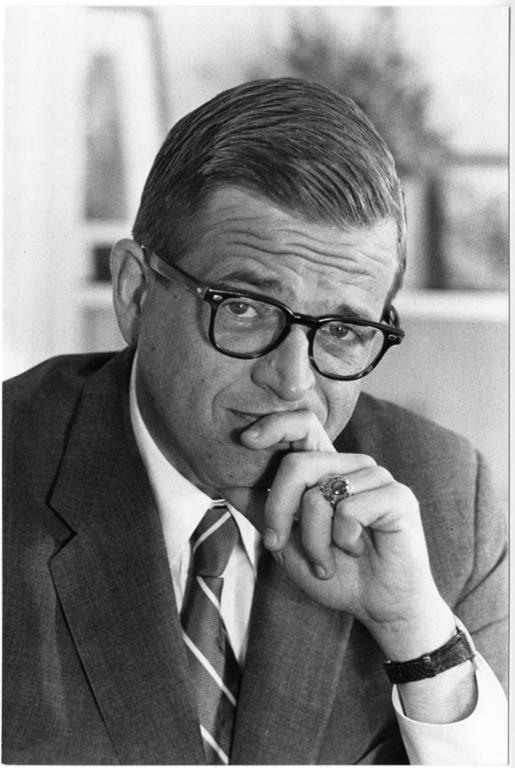
[from the original 1994 manuscript of my first book, A Biblical Defense of Catholicism; this portion dated 6-20-91]
1. Materialism
A. Kenneth Kantzer, professor of Theology and Dean of Trinity Evangelical Divinity School, and a senior editor of Christianity Today, declares that:
The overriding problem of the evangelical church today . . . is materialism . . . as a way of life . . . The Bible is so diametrically opposed to it that to profess it and to profess Christianity in one breath is patently absurd. But . . . it seems to be ‘normal’ church life and is, indeed, extraordinarily respectable. (“Ron Sider is Mostly Right,” Christianity Today, October 8, 1990, 21)
B. Jon Johnston
Today’s evangelical church has . . . come to cling tightly to, and even worship, those materials that satisfy the flesh. Many deserve the label ‘materialistic.’ . . . We wrongly aspire to (and frequently attain) a gaudy, materialistic lifestyle . . .
We need to ask what can be done to achieve a desperately needed mid-course correction among evangelical Christians. First, it is our responsibility to actively cultivate a simplified lifestyle. (Will Evangelicalism Survive Its Own Popularity?, Grand Rapids, Michigan: Zondervan, 1980, 89, 95)
C. Carl F. H. Henry
American evangelicalism is being spiritually thwarted by its affluence. No group of Christians has . . . more to learn about sacrifice . . . [our] lifestyles are clearly non-Christian . . . marked by greed, extravagance, self-gratification, [and] lack of compassion for the needy. (“Evangelicals: Out of the Closet But Going Nowhere,” Christianity Today, January 4, 1980, 21)
D. Increasing Concern Among Evangelical Leaders
Many evangelical leaders are alarmed at this unbridled love of mammon among their flocks and peers, and an increasing number of books are now appearing; for example: Ron Sider ( Rich Christians in an Age of Hunger, New York: Paulist Press, 1977), Jacques Ellul (Money and Power, Downers Grove, Illinois: Inter-Varsity Press, 2nd edition, 1979), Tom Sine (Why Settle For More and Miss the Best?, Dallas: Word Publications, 1987), Anthony Campolo (Seven Deadly Sins, Wheaton, Illinois: Victor Books, 1987 / The Success Fantasy, Victor Books, 1980), John White (The Golden Cow: Materialism in the 20th Century Church, Downers Grove, Illinois: Inter-Varsity, 1979), and Richard Foster (The Freedom of Simplicity, New York: Harper & Row, 1981). Sadly, however, the concern of wise leaders will likely have little effect on the massive accommodation to the influence of worldly pressures.
2. Selfism (Narcissism)
A. Jon Johnston
Evangelicals are being swept away by our society’s undertow of narcissism . . . Personal needs, activities, traditions, and customs have become the predominant focus of our attention . . . We are giving highest priority to attaining personal comfort . . . In general, we rationalize others’ afflictions and confine our attention to matters related to personal morality . . . A growing number of us are equating God’s favor with the amount of personal blessings He bestows. In other words, we believe that good health, fortune, and success are indicators of God’s personal approval of our lives. (Johnston, ibid., 70-73)
B. Donald Bloesch
The values of the technological society have penetrated the enclave of evangelicalism as much or nearly as much as they have the liberal establishment. Prayer is now seen as a technique for satisfying the desires of the heart. Salvation is interpreted as the fulfillment of the self in terms that society can understand and respect. God is portrayed as the unlimited possibility which we can tap into in order to gain security and happiness. Success is measured in terms of productive achievement. The Bible is evaluated according to how it functions in bringing people their desired goals in life. (The Future of Evangelical Christianity, Garden City, New York: Doubleday, 1983, 65-66)
C. Carl F. H. Henry
While evangelicals reject ‘unbiblical Narcissism,’ there is little remorse today for the sinful self; prime concern centers, rather, on self-potential, self-fulfillment, and even self-veneration. No clear line is drawn between self-indulgence and self-affirmation. (Carl Henry At His Best, Portland: Multnomah Press, 1989, 70)
D. Charles Colson
Much of today’s teaching and preaching communicates Christianity as an instant fix to all of our pains and struggles. Consequently, we begin to think of our faith as a sparkling magic wand: we wave it, and presto, our problems are gone in a puff of smoke. But this is, bluntly put, heresy. Like most subtle heresies, it tickles our ears . . . It not only makes Christians incredibly naive in approaching complex problems, but it can shatter the fragile faith of the believer who expects the magic wand to work every time. When those problems don’t disappear . . . he questions whether his spirituality is faulty. (Who Speaks For God?, Westchester, Illinois: Crossway Books, 1985, 31)
***
Photo credit: Charles Colson (1931-2012), special counsel to President Nixon, who later underwent an evangelical conversion and became a leading cultural figure within that sphere [public domain / Wikimedia Commons]
***













